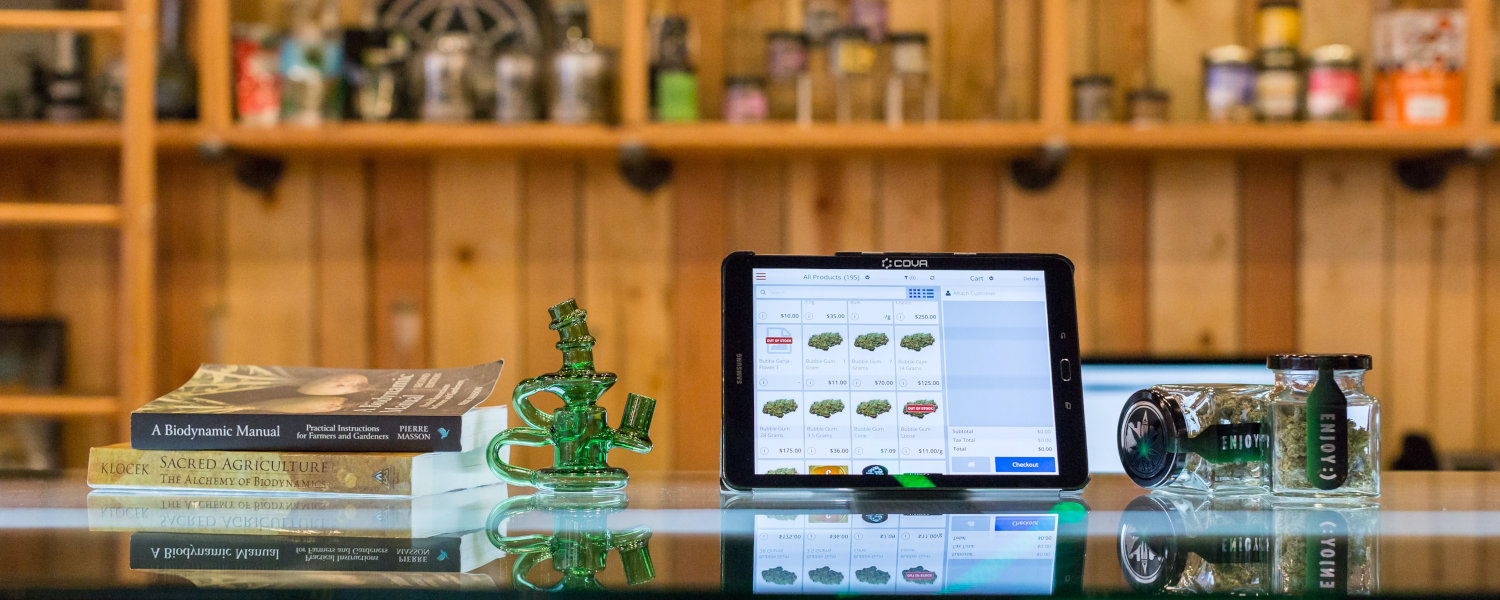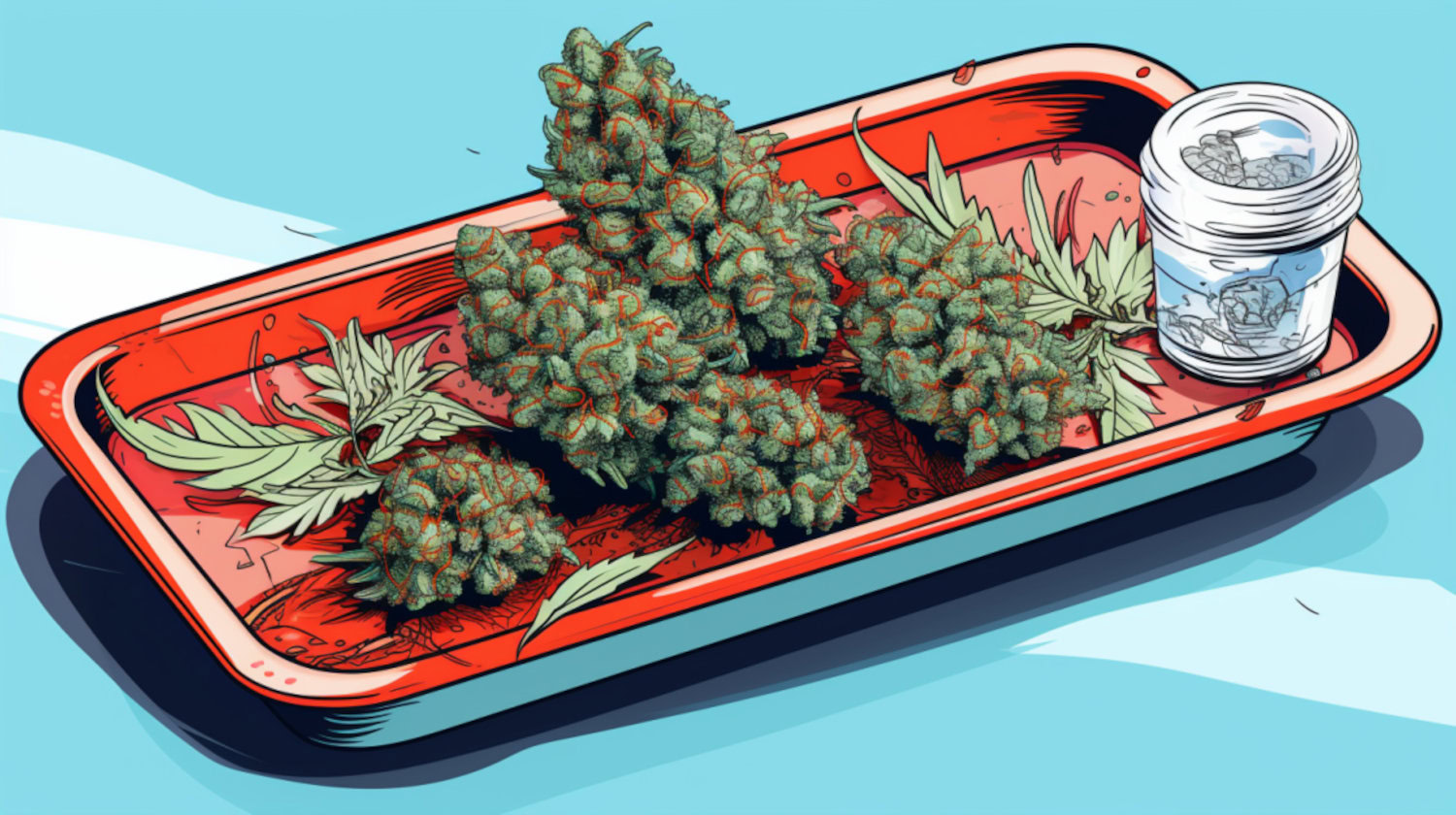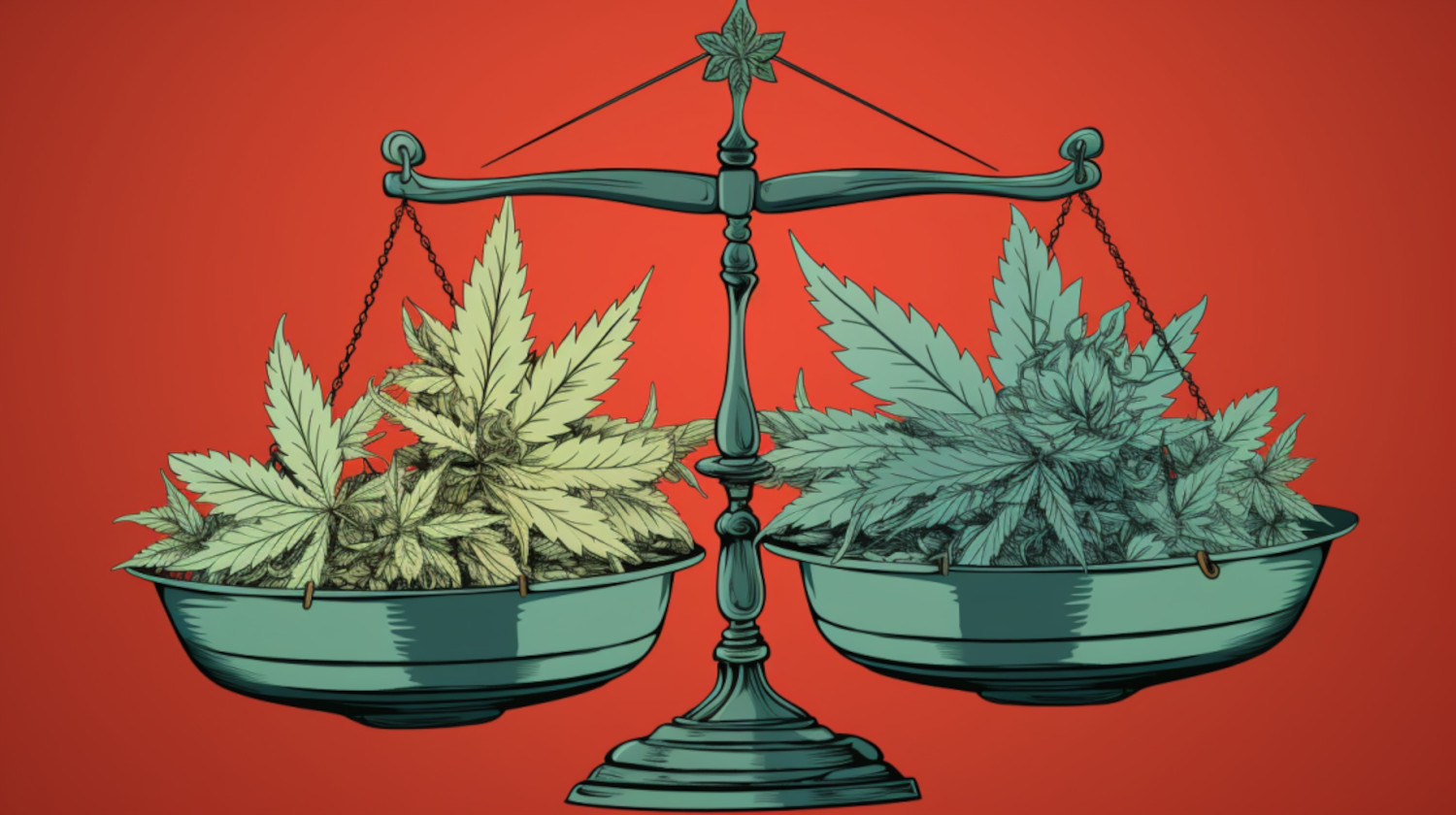In This Article
- What is a Dispensary?
- What is the Difference Between Medical and Recreational Dispensaries?
- What Products are Sold in Dispensaries?
- New Consumer’s Guide to Going to a Dispensary
- Before Going to the Dispensary
- What Do You Need to Bring to a Dispensary?
- Entering the Dispensary
- Browsing
- Purchasing from the Dispensary
- Dispensary Costs
- How Much Can You Save With a Medical Cannabis Card?
- Are There Deals for First Timers?
- Dispensary First Timer FAQ
- Conclusion
As states legalize cannabis nationwide, dispensaries have become established within designated jurisdictions. These legal cannabis retailers are home to hundreds of infused products and act as hubs of information for new and experienced cannabis users alike.
The first time you set foot into a dispensary can bring mixed feelings, from excitement over the product options to anxiety about not knowing which one to choose. Purchasing cannabis in a public space can be overwhelming, especially if you are new to cannabis or if you prefer to keep your consumption habits private.
If you’re looking to learn the ropes before heading into the dispensary for the first time, you’ve come to the right place. We’ll provide insight into the difference between a medical dispensary and a recreational shop, the types of products sold, what to bring with you, and costs, and answer other frequently asked questions from first-timers.
What is a Dispensary?
“Dispensary” is a term for any establishment that distributes products to people. It often refers to places that dispense medications, similar to a pharmacy.
But what’s a weed dispensary?
In the cannabis industry, a dispensary is an authorized legal retailer where, depending on the state, medical or adult-use cannabis is sold.
These stores can also be referenced with other names, like ‘shop,’ ‘collective,’ or ‘club.’ Some cannabis shops have fun brand names and accompanying in-house products, while others are simply retailers that house many industry brands. States can even authorize shops to be fully vertically integrated operations, where they also have cultivation, extraction, and other product operations.
Depending on your location, dispensaries can only operate in authorized jurisdictions, which may mean limited access for some communities. States like Oregon have laws that allow many retailers to operate within their cities, while others are selective. In California, for example, counties are able to limit the number of dispensaries: Fresno City has limited dispensaries to 14 for a population of over 540,000 people, while Fresno County prohibits dispensaries in all unincorporated areas. And in Hawaii, only twenty-two shops are available for the state’s over 34,000 medical patients.
What is the Difference Between Medical and Recreational Dispensaries?
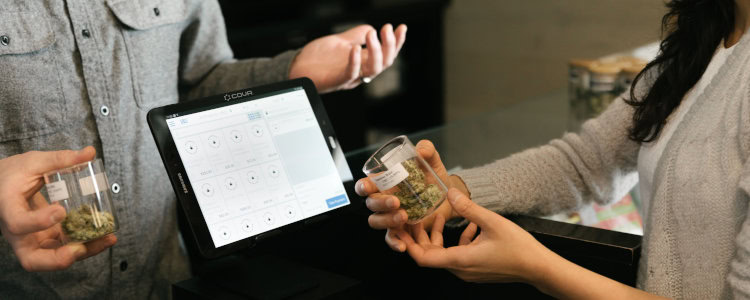
There are two types of dispensaries: medical and adult-use (also known as recreational). The main difference between them is the requirements for entering and purchasing products.
Medical dispensaries require an MMJ card, a doctor’s recommendation, or other medical documentation needed for the state. They may also have clinical-style waiting rooms to control flow and provide privacy for patients. Medical dispensaries can provide medical-grade cannabis that may be better suited for high-tolerance patients who are treating certain conditions or ailments.
A recreational or adult-use dispensary does not require a med card or physician’s recommendation. They cater to non-medical cannabis enthusiasts and may not be able to stock medical-grade marijuana.
Some shops operate as both medical and recreational. So, while you may not need a medical card to shop there, medical patients may have access to special discounts and privileges that aren’t available to recreational consumers.
Some states, like California and Oregon, operate adult-use and medical cannabis programs. The dispensary offers products and pricing in these programs based on whether the patron has a state-provided medical card. Depending on the location, the minimum age to enter recreational dispensaries is usually 21, and for medical dispensaries, it is 18.
Other states, like Georgia, have a strict medical-use-only cannabis program, where product selections are minimal and patients are required to obtain a medical card. Additional states that operate strict medical-only dispensaries include South Dakota, Arkansas, and Texas.
Limits may also exist in each jurisdiction regarding THC or CBD levels, types of products, and purchase amounts depending on the person's status as a recreational or medical customer.
What Products are Sold in Dispensaries?
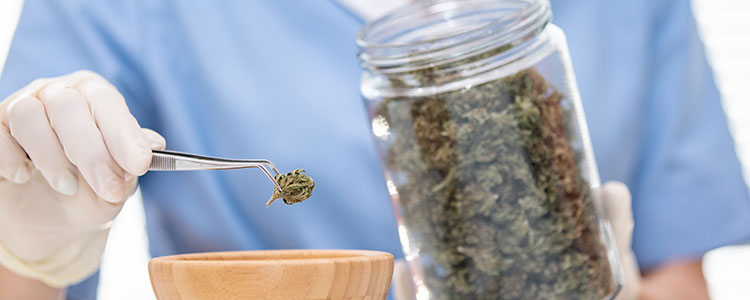
As licensed retailers, dispensaries offer various types of cannabis-infused products. The most common are:
- Dry flower (buds or shake)
- Vapes (cartridges, batteries, or single-use/disposables)
- Topicals (creams, oils, or transdermal patches)
- Edibles (baked goods, candies, or beverages)
- Concentrates (live resin, sauce, rosin, or others)
- Capsules and Tablets
- Tinctures
Different states may impose limits on the types of products available in the store and the potency of the products. For example, medical dispensaries may carry products that contain more THC or CBD than recreational, adult-use cannabis products and which are only available for MMJ cardholders.
New Consumer’s Guide to Going to a Dispensary
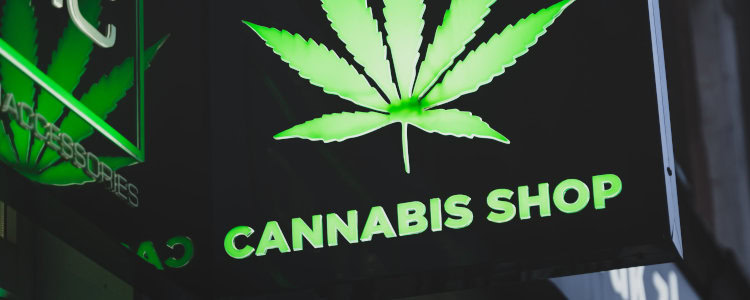
Dispensaries serve new customers daily who usually have an assortment of questions. The staff of budtenders is trained and ready to help answer most questions you may have. And to give you a head start, here are a few universal truths to help you with your first visit.
Before Going to the Dispensary
Most dispensaries offer their menus online. While stock availability may change when you visit the store, looking at your options will save you time when shopping.
You may also be overwhelmed by the sheer selection of products. Before visiting the store, peruse the online menu, note what interests you, and create a shopping list. That way, even if the store is sold out of a product you want, a budtender can quickly help you find a suitable alternative.
It can also be helpful to have your recommended dosage in mind to help make product selection easier.
The shop’s website may also tell you if pick-up, drive-up, or delivery services are available. This is helpful if you know exactly what you want and want to skip the line.
What Do You Need to Bring to a Dispensary?
Before heading to your local dispensary, ensure you have the required documentation.
- At a minimum, you’ll need some form of valid government-issued identification, such as a state ID, driver’s license, or passport.
- If you’re in a state that has only a medical marijuana program, you’ll want to make sure you have your state-issued MMJ card.
- Cannabis banking is still a sticky subject for legal operations, so many dispensaries only accept cash. They will usually provide access to an ATM, but having cash on hand may save you time (or extra fees).
- If you are discreet about your cannabis use, you may also want to bring your reusable bag to avoid being seen with branded bags.
Entering the Dispensary
When you arrive at the shop, you must show your identification first. Sometimes, a security guard or staff member is in front of the door to authorize your ID. Other times, you’ll enter a waiting room-like area where a staff member will check it.
You will do this every time you enter the store. Just like in a bar or liquor store, expired IDs are not accepted. They will also need to see your medical card if you're a medical patient.
The lobby is great for asking about the store's video, photo, or phone policy. A dispensary is a private place for some patrons, and shops may not allow videography, photography, or phone calls while visiting. Be aware and respectful of each store's policy.
Once you’re checked in and ready, you may be asked to wait in the lobby or may be told you can enter the sales floor. Each store's sales tactic is different. You may have to stand in line and wait for a budtender, or you may be able to browse for a bit before a budtender approaches you to order.
Pre-orders may require you to go to a different line.
It’s not uncommon for some dispensaries to encourage – or sometimes require – customers to make an account. The account may track purchases and create marketing material. If you don’t want your data stored, ask if there are alternative solutions or if your account can be deleted after purchasing. When required, the registration process doesn’t take too long, depending on the flow of business. But we recommend allotting extra time to do this for your first time in each shop. If there are multiple dispensaries in your neighborhood, you must register at every store you visit.
Dispensary staff (often referred to as budtenders, consultants, or guides) are usually very helpful. They are trained to answer your questions and advise you through the experience if you need more assistance in-store. They are also valuable resources for daily discounts and sales.
Be conscious of the laws in your region. Some jurisdictions have strict regulations regarding parking lots and surrounding areas. This may mean that children or minors are not allowed to be with you and that consumption is prohibited on-site.
Be conscious of the laws in your region. Some jurisdictions have strict regulations regarding parking lots and surrounding areas. This may mean that children or minors are not allowed to be with you and that consumption is prohibited on-site.
Browsing
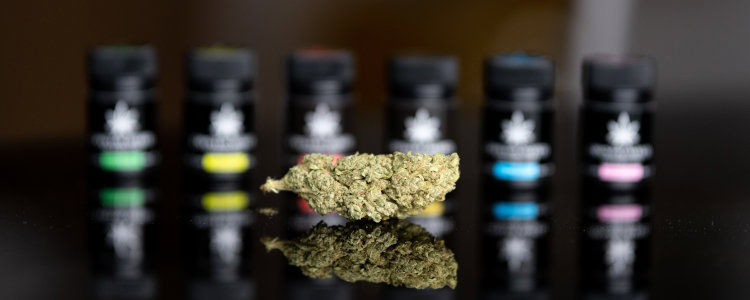
When you enter the sales floor, you’ll usually have visual access to the cannabis products, at the very minimum. This may be through display cases or a digital menu.
The shop should typically have display labels of each product and its cannabinoid concentration, as well as test results on the product packaging label. Use these dispensary and packaging labels as another helpful guide in your shopping. Look for labels of indica, sativa, hybrid, or effects like sleep, energy, or relaxation.
Some shops have products you can browse and pull straight off the shelves. If you’re shopping for buds, smell jars may be available for you to smell your options before purchasing.
Have a general idea of what you want. Let the staff know if you’re looking for a specific product or brand, need a good deal, have an effect you want to experience, or if you have any other specific questions. While some staff may be more experienced than others, be open to suggestions and mindful that they may not have the answer to all your questions. The products you choose are ultimately up to you, and how you choose should be a delicate balance of your needs and wants. Utilize the staff kindly.
Be mindful of other patrons and do your research. Budtenders are helpful staff, but they are not bartenders. Friendly banter is okay, but taking up hours of their time is uncommon. Lines can form quickly behind you and add unneeded stress to your visit. A typical interaction in a dispensary is around 5-30 minutes.
It’s important to note that, especially in retail shops, the staff are not licensed physicians or doctors and are just there to help in the sales experience. If you’re looking for advice on dosage and the right product for your condition, it is recommended you consult with a state-certified medical marijuana doctor.
Purchasing from the Dispensary
A budtender will ring you up once you decide on your product selection.
Cannabis banking is still a federal issue; many stores do not accept debit or credit cards (or require an additional charge). And Mastercard recently announced it would no longer allow cannabis debit card transactions.
ATMs are usually available, and sometimes stores offer discounts to offset any fees. However, these ATMs may also limit how much money you can withdraw at a time.
Each state has limits to how much of each product you can purchase. Plan your order accordingly, and remember that your budtender will help keep track of your total so you can’t accidentally purchase more than the legal limit.
If you’re a medical patient visiting another state with legal, medical cannabis, there may be reciprocity laws that allow out-of-state patients to purchase with their home state’s medical card.
Finally, it’s common for budtenders to accept tips. There are no standards (like 20% in the restaurant industry), so if and what you tip is entirely up to you. Some shops are pulled houses where the whole staff splits the tips, and others are individual. And some stores may not accept tips at all.
Dispensary Costs
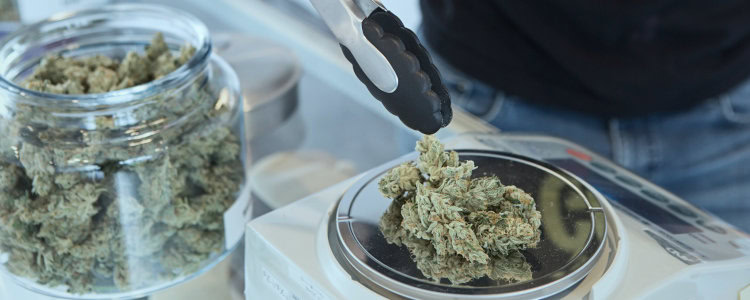
A great question to ask when you’re in the store is, “Do these prices include tax?” The answer may drastically alter your final selection.
Cannabis taxes can vary widely by state and jurisdiction. Sometimes, the prices on the menu have added sales and cannabis taxes, which can be as high as 50% in some regions. These may change depending on whether you are purchasing medical or recreational products, as medical cannabis card holders can save big on taxes in many states.
How Much Can You Save With a Medical Cannabis Card?
Shops may implement other fees or minimum purchase requirements for delivery or pre-orders. Be mindful of ATM fees when withdrawing money.
Consider also that many dispensaries offer daily deals, coupons, and bulk deals, where larger quantities of products may receive an added discount.
Are There Deals for First Timers?
Ask the staff what their first-time dispensary deals are.
New customers are often offered a particular discount or deal (though this isn’t guaranteed at all dispensaries). Sometimes, it's a percentage or dollar amount off your order. Other times, it’s a gift with purchase.
There is usually some other type of sale or deal running. It may be on a select product or a whole category of items. Clearance items may also be available, as overstocked products and items that may be expiring soon can be sold at steep discounts.
Some dispensaries offer loyalty programs through which recurring customers can receive gifts, discounts, or deals.
Dispensary First Timer FAQ
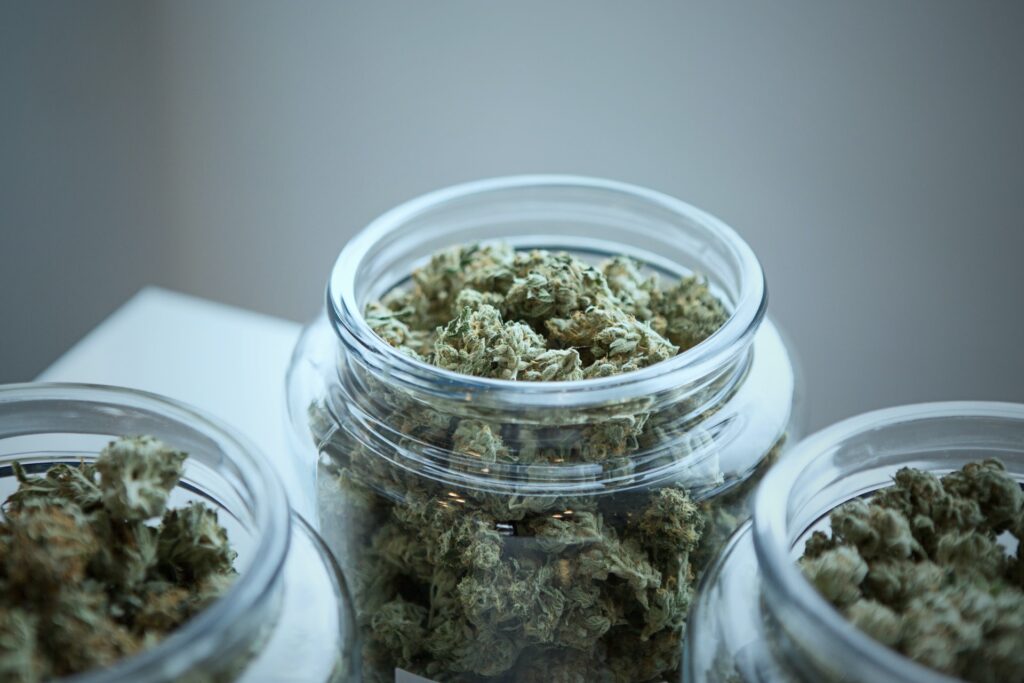
How often can you go to a dispensary?
What if you forgot something or needed one more pack of edibles? First-time customers wonder if there’s a limit on how often they can go to a dispensary. The answer depends on the state’s legislation. While you may be able to enter and exit a store a few times a day, there is usually a legal limit to the number of products you can purchase within a specific time frame.
Look into the local legislation or ask a staff member for specifics.
Can you go into a dispensary under 21?
Some states have medical cannabis laws that permit cannabis use for minors. But can you go to a dispensary if you’re under 21? Maybe. In some states, medical patients with an authorized medical card can enter as young as age 18. But this rule can vary by state, and you may wish to call the dispensary ahead of time to verify.
What is the dispensary limit per day?
A dispensary limit is the amount of cannabis you can purchase within a specific time frame. For example, California only allows customers to buy an ounce of dry flower every 24 hours.
Do dispensaries take credit cards?
Unfortunately, due to federal law, cannabis companies struggle to work with banks and typically cannot accept credit card payments. Debit cards may be accepted. Check with the shop you decide to buy at.
Do dispensaries take insurance?
The standard answer is no. The federal status of cannabis as a Schedule I illegal substance makes it highly unlikely that shops will accept insurance.
Can dispensaries deliver?
It depends on the legal status of the state and state guidelines. Some states with legal cannabis do not allow delivery services. Others only allow delivery to medical marijuana patients, but not recreational consumers.
What dispensaries ship out of state?
If you’re wondering what dispensaries ship out of state, they can’t. Cannabis is federally illegal, and shipping products out of state can result in severe penalties. The exception is hemp products that are federally legal and contain less than 0.3% THC.
Can I go to a dispensary without a card?
Only if you’re purchasing in a recreational state where adult-use purchases are legal can you enter a dispensary without a medical cannabis card. In those states, you’ll need to be of legal age and have valid identification.
Can I go to a dispensary before my card arrives?
If you’ve already submitted your application for your MMJ card, you may be eager to go to a store to make a purchase. Some states offer a digital copy of your card before the physical one arrives. Others allow patients to shop with their doctor’s recommendation. Check your state’s specific process.
Do dispensaries keep your information?
In some states, dispensaries can store this information to make your next visit much more straightforward (and to offer tailored service or discounts). In most states, dispensaries need customer consent to store this information. If you do not wish to have your information stored, ask how you can delete your account after your purchase. Other states, like Oregon, prohibit customer accounts unless permission is granted.
Is dispensary weed stronger?
The answer to this is extremely subjective and dependent on the state. Some states limit the amount of THC or CBD in a product. Other states have generous limits, giving consumers access to products that can be more potent than they’re used to.
Dispensary cannabis is generally safe and accurately labeled, with many states requiring products to pass strict testing to determine purity and potency.
Which is less expensive, dispensary cannabis or the legacy market?
The cost of cannabis products contributes directly to how accessible they are to people. The legacy market has ‘street prices,’ which are without hefty taxes and are often much lower than dispensary prices. However, the tradeoff is that legacy market and gray market cannabis may not have undergone the same strict testing for contaminants and accurate labeling.
Is there dispensary etiquette to follow?
Dispensary etiquette is important. Generally, be aware of each shop's phone use rules, product purchase limits, and return policy. Consider also what inconveniences are state-imposed. Med card and ID requirements, purchase limits, and taxes are often out of the hands of the budtenders.
Be mindful of the other patrons around you. Not everyone is open about their consumption habits and may not want to chat. Likewise, it's recommended you avoid using your phone out of respect for other patrons and budtenders. Some states won't allow budtenders to sell to a customer who is talking about the product with another individual.
And while you shouldn’t feel rushed while browsing, try to come prepared with a general idea of what you may want. This will help keep the line moving (and there may be a number of customers trying to get in and out of the store).
If you have a lot of questions, let your budtender know when you enter so they can pair you with someone appropriate. Remember that tipping budtenders is a common practice but is not required.
Can non-US citizens purchase from a dispensary?
Cannabis remains illegal at the federal level. For non-US citizens, it is discouraged to purchase cannabis even in legal recreational states. Doing so could potentially lead to the revocation of the visitor’s visa or cause it to be declined during the renewal process.
Bank records aren't truly private in the U.S. Using a credit card or bank card for a cannabis purchase could leave a paper trail that immigration officers can discover. For the same reason, non-citizens should seek the advice of a qualified immigration attorney before becoming patients, as these records are accessible by law enforcement in many states.
Passports from any country are typically valid in most adult-use states. Several countries like the UK have warned their citizens from purchasing cannabis in the U.S., even in legal states.
Conclusion
Having access to a legal dispensary, whether medical or recreational, is a privilege not allotted to everyone. Many places are cannabis deserts where storefronts are extremely limited despite their state's legal status.
Each store may have different rules and ways of navigating the sales floor. Be open-minded and utilize the staff available to you.
If you require a medical card or have any further questions regarding cannabis, NuggMD is your one-stop shop for resources.
The information in this article and any included images or charts are for educational purposes only. This information is neither a substitute for, nor does it replace, professional legal advice or medical advice, diagnosis, or treatment. If you have any concerns or questions about laws, regulations, or your health, you should always consult with an attorney, physician or other licensed professional.

